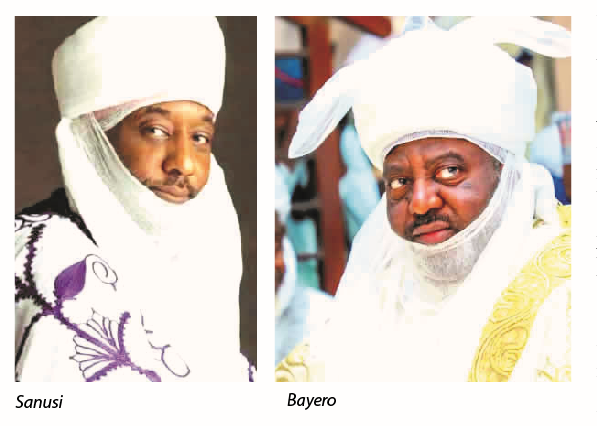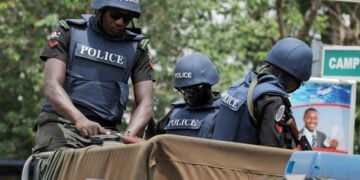The Kano Emirate, one of Northern Nigeria’s most enduring symbols of cultural and spiritual heritage, remains mired in a deepening crisis over its rightful Emir, pitting Muhammadu Sanusi II against Aminu Ado Bayero. As of July 24, 2025, the dispute has escalated into violence, with the July 6 clash near the Kofar Kudu Palace marking a dangerous turn. According to this newspaper’s July 7 report, Bayero’s supporters allegedly attacked Sanusi’s residence, damaging gates and injuring guards.
Subsequent reports of the July 8 eviction of Bayero loyalists from the main palace, alongside the controversial appointment of parallel titleholders in April and July 2025, have further inflamed tensions. With the Supreme Court yet to deliver its long-awaited ruling, the situation demands swift judicial clarity, governmental restraint, and community mediation to safeguard both lives and Kano’s centuries-old legacy.
The conflict’s roots lie in 2020, when then-Governor Abdullahi Ganduje deposed Sanusi II and installed Bayero as the 15th Emir. Four new emirates were created to dilute the power of the Kano Emirate. That arrangement was upended in May 2024, when Governor Abba Kabir Yusuf reinstated Sanusi as the 16th Emir through the Kano State Emirate Council (Repeal) Law, dissolving the Ganduje-created emirates. What followed was a legal tug-of-war: a Federal High Court ruled Sanusi’s reinstatement “null and void” in June 2024, and a Court of Appeal issued a stay on March 14, 2025, maintaining the status quo while the case languishes before the Supreme Court.
The stakes escalated on July 6, when Bayero’s entourage, returning from a condolence visit, allegedly provoked violence that left guards injured and police vehicles damaged. Two days later, security forces reportedly oversaw the eviction of Bayero loyalists from the palace, displacing families and widening divisions. Parallel appointments—Sanusi naming his uncle, Munir Sanusi Bayero, as Galadiman Kano on April 9, countered by Bayero installing his brother, Sanusi Ado Bayero, in the same role on April 21—underscore how the crisis has fractured traditional authority.
This dispute is no longer a matter of personal rivalry. It now threatens Kano’s social fabric. Residents have voiced fear in media reports, while social media reflects growing frustration—some urging peace, others fanning the flames with accusations of political manipulation.
Politically, the crisis pits Governor Yusuf’s administration, which defends Sanusi’s reinstatement as lawful, against federal influences and Bayero’s camp, which leans on the court’s stay to claim legitimacy. Alleged backing from former Governor Ganduje and the presence of federal security forces have created perceptions of interference, undermining confidence in a neutral resolution.
Meanwhile, judicial delays compound the danger. Since March, the Supreme Court has failed to deliver a ruling—whether due to inertia or pressure—leaving a vacuum that agitators exploit. The July 6 violence exposed serious lapses in maintaining order, despite police intervention. Sanusi’s aides accused Bayero’s supporters of provocation; Bayero’s camp dismissed the charge, calling it a clash with “hoodlums.” But the fact remains: people were injured, property was damaged, and trust was eroded.
The cost is human. Guards have been attacked. Families displaced. Communities divided. While the state and federal governments fixate on legal technicalities, ordinary Kano residents bear the brunt of this unresolved royal impasse.
Resolution is overdue.The Supreme Court must expedite its ruling. Legal closure is essential to end the duality and restore a single recognised authority before further violence erupts. In the meantime, security must be reinforced around critical sites like Gidan Rumfa and the Nassarawa Palace—not to intimidate, but to protect lives.
The Kano State Government must show restraint by halting some actions like forced evictions and instead engage in transparent dialogue with Bayero’s camp. Federal authorities must ensure true neutrality; any hint of bias will deepen resentment.
Community leaders, particularly the Sultan of Sokoto, should spearhead mediation, bridging divides between rival supporters. Civil society, which has been vocal online, must organise peace forums to channel public sentiment toward reconciliation, not escalation.
Finally, lawmakers in the National Assembly must revisit laws governing traditional institutions. The Kano crisis has exposed how easily politics can weaponise heritage, turning sacred thrones into pawns of statecraft. Stronger legal frameworks are needed to shield these centuries-old symbols of identity from future power struggles.
The Kano Emirate dispute now stands as a test of Nigeria’s ability to balance tradition with modern governance. The July 6 violence and the ongoing tensions are not just about a throne—they are about the soul of a state and the peace of its people.
This newspaper, committed to societal progress and accountability, calls for a swift, just Supreme Court ruling, governmental restraint, and a collective effort toward peace. Kano’s legacy as a land of commerce, culture, and faith must not be lost to political gamesmanship.
Resolution is no longer optional—it is imperative. And it must happen now.





